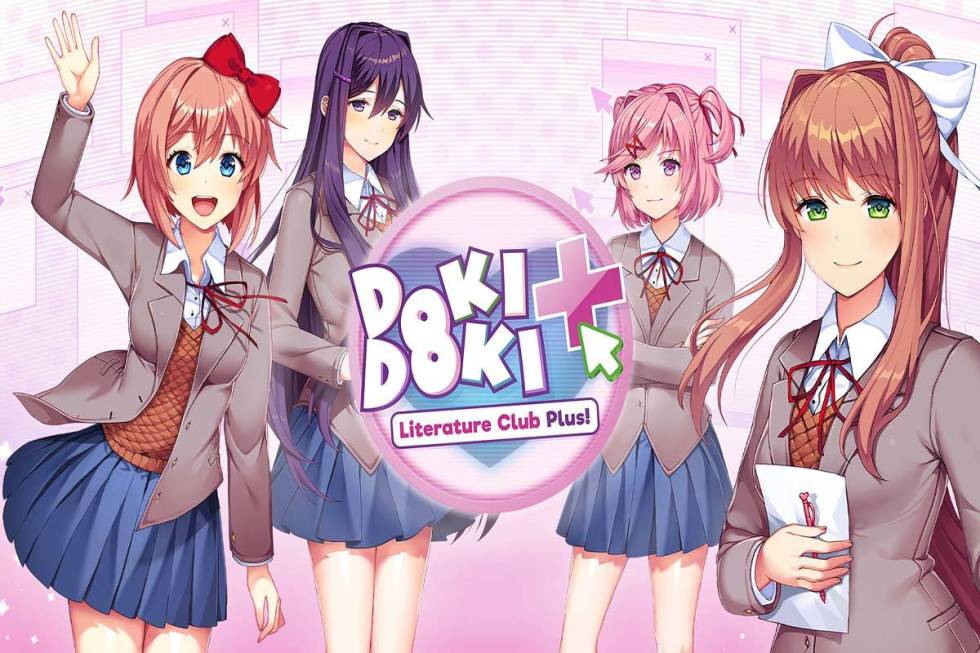Doki Doki Literature Club Plus! reaches new audience

In 2017, a game called Doki Doki Literature Club! was released on PC. On the surface, the visual novel looked like the numerous dating sims that came before it. Players soon discovered there was much more than meets the eye.
“DDLC has always been a story about players relationship with fiction,” creator Dan Salvato said. “That was the number one inspiration for DDLC. The observation that different players or audiences of media in general, have different types of relationships with media or the fictional characters.”
Recently, Doki Doki Literature Club Plus! was released on PlayStation 4, PlayStation 5 and Nintendo Switch, giving a whole new segment of gamers the chance to experience this unique game.
Upon its initial release in 2017, the psychological horror game quickly saw its fan base grow and, as word spread about this unique horror experience, DDLC became increasingly popular.
The game’s main characters, Monika, Sayori, Yuri and Natsuki, connected with gamers in a way that surprised Salvato.
“These characters outside of the game matured in a way,” Salvato said. “The public perception of these characters changed very much. They were sort of designed to exemplify these one-dimensional, exaggerated dating sim character tropes. Those aren’t the traits players latched onto. They related to the extremely human traits that these characters expressed between those tropes. Those are what became the face of the characters to the public over the next couple of years. That was really inspiring.”
As time went by, Salvato’s team began work on porting DDLC to the PlayStation 4, PlayStation 5 and Nintendo Switch, along with some added content.
“We want the chance to make the game as accessible as possible,” Salvato said.
But the team faced numerous challenges in bringing the game to home consoles, notably that some features in the original were PC specific. The result was some introspection on what made DDLC work and how best to translate that to a new platform.
“It prompted some really important questions about what the essence of the game is about and how we can translate that to consoles in an effective way,” Salvato said. “It forced us to be creative in various new areas. It was really fun to deeply think about these questions and decide on this completely different platform how we can create this unique out of the box experience.”
What starts out as a seemingly innocent entry into the visual novel genre, DDLC quickly takes players on a wild ride and it’s a ride that Salvato hopes starts a deep and worthwhile conversation.
“I hope that for players who don’t normally play these sorts of narrative games, it will be an eye-opening experience for them and they learn a little about themselves,” Salvato said. “I hope it opens up more conversations about mental health and how we can tend to our own needs, understand each other a little bit better and learn how to be good to each other.”
Contact Lukas Eggen at leggen@reviewjournal.com or 702-383-0261. Follow @LukasEggen on Twitter.